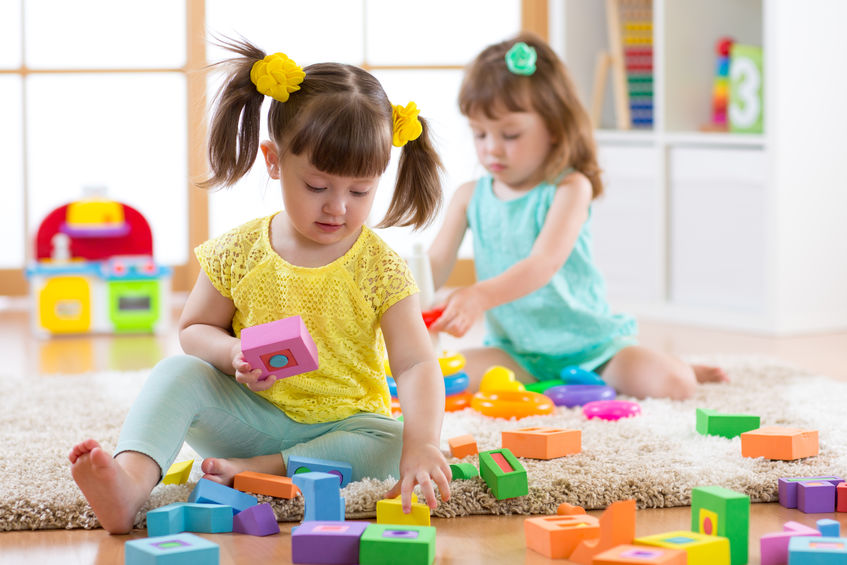
The preschool age is a golden period for children who need more attention. Not only requires great responsibility, but this period also requires parents to be smart in supporting the development of children and shaping their personalities.
Definition of preschool-age children
Preschool-age children are children aged 3-6 years. At this time, children have various kinds of potential. Your little one’s social and cognitive development has also improved to communicate better and have curiosity.

At preschool age (preschool), children are usually entered into kindergarten to receive early education before entering elementary school. The characteristics of preschoolers generally include the following aspects:
- Physical: Children’s muscles are stronger, and the growth of bones becomes hard and hard.
- Motor: Children can manipulate small objects and play with blocks of various sizes and shapes.
- Cognitive: Children are curious and skilled in the language.
- Emotional: Children can express themselves and feel envious and jealous.
- Social: Children can establish social contacts with people outside the home.
Preschoolers must develop their independence. Because, at this age, your little one will begin to enter a wider environment, namely kindergarten. So, he should not be overly dependent on his parents.
As a parent, you can start teaching some basic forms of independence, such as using the toilet and dressing.
The difference between preschool-age children and toddler age
Maybe some parents are still confused in distinguishing the term preschool age from toddler age. The two are certainly different. As previously mentioned, the meaning of preschool ranges from 3-to 6 years of age. Meanwhile, toddlers are children aged 1-3 years.
The development of toddler age children is also different from preschool-age children, including:
- Motor: Walking, running, self-feeding, drawing
- Language: Speak single words then sentences
- Social: Play with friends and take turns
- Cognitive: Begins to be able to match and sort shapes, images, or colors; and understand different shapes and sizes.
Unlike preschoolers who generally enter kindergarten, you can enroll toddler-age children into a playgroup or playgroup. However, make sure the age of the child is not too early.
How to support the development of preschoolers

Here are some tips that parents need to consider to help the development of preschoolers.
1. Provide a healthy environment for children
According to research, children at the age of 3-5 years will show their true personality. Therefore, parents need to be sensitive and responsive. Each child has its uniqueness.
So you shouldn’t be selfish by forcing them to be what you want them to be. Provide a healthy environment so that children can grow up to be good people.
2. Encourage children to play and practice independently
Play can be said to be one of the important factors to help the development of preschool children. In addition to physical, mental, and emotional.
By encouraging them to play actively, children will get many useful things. It starts by teaching them to socialize, be independent, resolve conflicts, and develop their imagination power.
3. Avoid labeling
The next tip to help preschoolers develop is to avoid labeling. Children will be much more sensitive in responding to various things in this golden period.
Therefore, if you want your child to grow more confident, avoid labels such as fat, stubborn, shy, and so on.
4. Set a good example
Parents are the first example children will imitate, so you need to set a good example.
Teach children to be polite, friendly to anyone, patient, and always share. That way, you can encourage your child’s development in a positive direction.
5. Let children develop into themselves
As discussed in the first point, parents should not be selfish and force children to be what they want. Let children make friends and enjoy the world in their way.
In addition, so that children become more developed, you can support the interests they want. Expand children’s experience so that they can gain more insight and knowledge.
6. Provide good nutrition

For the growth and development of preschool-aged children to run optimally, one thing that needs to be met is their nutritional needs.
Give children a variety of balanced nutritious foods consisting of staple foods, side dishes, fruits, and vegetables.
In addition, make sure your child is drinking enough water to keep his body properly hydrated.
7. Be patient in accompanying children
You certainly have to be wise in applying the way of parenting each child. For example, if the baby is sensitive and grumpy, be more patient and don’t force it.
In addition, parents are also not allowed to compare the existence of children with other people. The habit of comparing children can make children mentally fall.
Also, avoid punishment by using violence because it will negatively impact the child’s physical and mental health.
Activities to hone motor skills of preschoolers

Did you know that inviting children to do fun things daily can help improve their motor skills?
You can also hone your child’s motor skills by doing several simple activities. Some of the fun activities you can do with preschoolers include:
- Let the child help you prepare lunch or dinner
- Solve puzzles together
- Doing games that require dice
- Painting with finger
- Insert the rubber band into the outside of the drink can.
Tips for maintaining the health of preschoolers

According to the United States Centers for Disease Control, the CDC, here are some tips to help keep preschoolers healthy:
- Try to eat as often as possible with your child. Let them watch you enjoy fruit, vegetables, and whole grains at mealtimes and snacks.
- Limit the consumption of foods and beverages that contain added sugar, solid fat, or salt for children.
- Do not provide television in the rooms of preschoolers. Limit your child’s screen time to no more than an hour per day, and that’s only for quality programs, both at home and at school.
- Give your child age-appropriate exercise equipment, but let them choose what to play with, and it can motivate them to be active in a fun way.
- Make sure your child sleeps according to the recommended hours. For preschoolers (3-5 years), the required hours of sleep are 10-13 hours (including naps).




